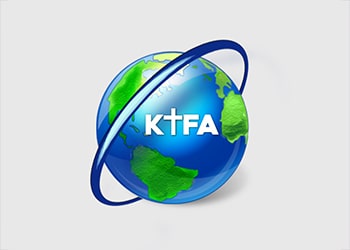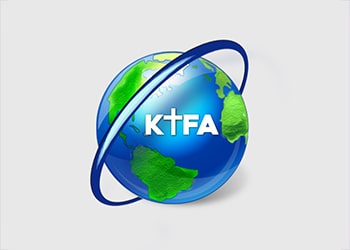Opportunities in Iraq” after overcoming “years of turmoil” at an international conference in Washington
The American Atlantic Council Institute announced that it will organize a conference on Iraq in Washington on October 15, with the participation of current and former politicians and experts from the United States and Iraq, where it will address opportunities and challenges in relations, overcoming years of turmoil, with a focus on the energy sector, and diversifying the Iraqi economy.
According to the American Institute, the conference, which is being held within the framework of the “Iraq Initiative”, under the title “The Path to Recovery, Development and Global Partnerships in Iraq”, will bring together a diverse group of senior experts, researchers and policy makers from both the United States and Iraq, including current and former senior officials.
The report, translated by Shafaq News Agency, explained that the conference, the third of its kind for the “Iraq Initiative”, will address the major challenges and opportunities facing Iraq as it begins to overcome years of volatility, with early signs of recovery and development.
The report added that the conference will focus this year on the advancement of the energy sector, the efforts of the Iraqi government towards sustainable economic diversification, and the evolving path of the US-Iraq relationship.
The report added that the conference will witness dynamic discussion panels that explore how Iraq, the United States and the international community can interact positively with Iraq as it moves through its unique social, political, economic and security changes.
The report added that the conference will witness direct personal participation and via video, and will include translation into Kurdish and Arabic.
The report concluded by saying that the “Iraq Initiative” program provides transatlantic and regional policymakers with unique insights and analyses on the ongoing challenges and opportunities facing Iraq as the country attempts to establish an inclusive political system, attract economic investment, and stimulate a vibrant civil society. LINK
************
Clare: A large ministerial delegation will visit the region tomorrow to discuss several files and issue important decisions
9/7/2024
Kurdistan Democratic Party member Wafaa Mohammed Karim confirmed today, Saturday, that tomorrow, Sunday, there will be a joint visit from the federal government to the region to discuss several files and follow up on the salaries of Kurdistan Region employees.
Karim told Al Furat News Agency, “Tomorrow there will be a visit by the Ministers of Finance, Foreign Affairs, Planning, two ministers, the head of the Border Ports Authority, and the Governor of the Central Bank to the region to discuss several files and hold important meetings to follow up on the file of the border ports and the salaries of the Kurdistan Region employees.”
He added: “The large ministerial delegation will go to resolve files and take decisive decisions regarding salaries, border crossings, and checkpoints between the region and the center.”
He stressed that “all these files will be discussed and important decisions will be issued in favor of both parties.”
In a related context, a source told Al Furat News Agency that Minister of Labor Ahmed Al Asadi will be among those attending the meeting.
************
Clare: The first of its kind.. A meeting between the Economic Ministerial Council of the Baghdad and Erbil governments in Kurdistan
A delegation from the Federal Ministerial Council for Economy will arrive this evening, Saturday, to hold a meeting with the Economic Council in the Kurdistan Region tomorrow, Sunday.
The federal delegation is headed by Deputy Prime Minister, Minister of Foreign Affairs and Chairman of the Ministerial Council for the Economy, Fuad Hussein.
The first joint meeting will be held tomorrow between the Federal Ministerial Council for the Economy and the Economic Council in the region, in the presence of Masrour Barzani, Prime Minister of the Kurdistan Regional Government. It will last for two days, to discuss the controversial issues between the two sides, and to ensure constitutional rights, financial dues, and the region’s share of the federal budget.
*************
Clare: Passing the investment law within two weeks.. What are the positives?
The Parliamentary Investment and Development Committee expected, today, Saturday, to pass the Industrial Investment Law within the next two weeks in Parliament, while it spoke about the advantages and positives of this law.
The deputy head of the committee, Hussein Al-Saabri, said in an interview with Sumarya News, “Parliament will approve the industrial investment law within two weeks, and this law is one of the most important laws that serve the industrial investor in Iraq and raise the pace of industrial movement in the country,” indicating that “this law includes customs exemptions and land ownership for the investor inside and outside the cities, with the precise identification of industrial areas within the cities.”
Al-Saabri added, “The law also includes the protection of foreign investors, their money, and ownership within new industrial districts and areas with certain controls,” noting that “the law is currently in the linguistic and legal amendment stage in preparation for presenting it to parliament sessions within two weeks for the purpose of voting on it.”
Al-Saabri considered that “the approval of this law represents a qualitative leap in Iraqi industry,” noting that “the law will greatly reduce exceptions, but rather there will be fair competition between companies and entities that win project contracts.”
Clare: Prime Minister issues directives to develop electronic payment systems and services
Prime Minister Mohammed Shia Al-Sudani directed, on Saturday, to take a package of measures and directives to develop electronic payment systems and services and follow up on their implementation by specialized committees.
A government source said, in a statement reported by the official news agency, and reviewed by “Al-Eqtisad News”, that “in the framework of Prime Minister Mohammed Shia Al-Sudani’s continuous follow-up to the development of electronic payment systems and services, and in light of his review of the field supervisory reports related to the implementation of these services in various Iraqi ministries and institutions, he directed to take a package of relevant measures with follow-up of their implementation by specialized committees.”
He added, “The directives were as follows:
1. Directing the Ministry of Planning, in cooperation with the Central Bank of Iraq and the World Bank, to create a national budget allocated to support and develop digital payment systems across the country.
2. Directing all ministries, including the Central Bank of Iraq, to prepare an electronic cash flow statement periodically to ensure financial transparency, determine liquidity and manage risks, which contributes to improving financial planning.
3. Directing ministries and government institutions to establish strategic partnerships with banking and non-banking financial institutions as well as technology institutions and adopt effective action steps for cooperation and exchange of proposals and expertise.
4. Obligating financial and banking institutions to develop their technical and digital systems in accordance with the latest international standards, including strengthening anti-money laundering and anti-fraud systems; in order to ensure operational efficiency, improve the quality of banking services and achieve full compliance with regulatory controls.
5. Obligating financial and banking institutions to develop cyber protection systems and adopt the cyber resilience document, with strict adherence to the controls issued by the Central Bank regarding electronic governance, to ensure comprehensive protection of banking systems against cyber threats and ensure business continuity in the face of crises.
6. Directing ministries and government institutions to develop capable government work teams to follow up on electronic payment operations on a daily basis through training and qualification, and through specialized system portals provided by payment services companies.
7. Directing the Ministry of Communications to cooperate with ministries and government institutions to expedite the adoption of the Electronic Signature and Electronic Transactions Law No. 78 of 2012 to be compatible with the requirements of electronic payment and collection settlements in the Ministry of Finance in cooperation with the Central Bank of Iraq.
8. Instructing the Ministry of Finance to submit a study on the mechanisms for creating intermediate accounts, adopted by government institutions as a mechanism for dealing with restricted government accounts to solve the problem of interruptions for citizens in the event of failure of financial operations.
9. The Central Bank shall issue directives to private and government banks to deal transparently and not discriminate between electronic payment companies.
10. The Central Bank of Iraq shall prepare what is necessary to cancel the prepaid ceilings for cards used locally to ensure wider and more flexible use.
11. Directing ministries and government institutions to establish specialized units within government departments to facilitate financial matching and settlements and resolve disputes arising from electronic payment, in coordination with banks.
12. Directing the Integrity Commission to intensify monitoring of collection points in government departments to ensure transparency and integrity.
13. Directing the Financial Supervision Bureau to develop and legislate administrative and financial updates that are compatible with electronic payment systems and to follow up on them on an ongoing basis.
14. Emphasizing on government institutions and electronic payment service provider companies to implement the paragraphs contained in the electronic financial collection and collection agreements according to the responsibilities of each party contained in those agreements.
15. Directing government banks to complete the activation of the comprehensive banking system to improve financial and administrative performance.
16. Obligating all ministries and government institutions to adopt advanced electronic administrative and accounting systems to enhance efficiency and transparency.





